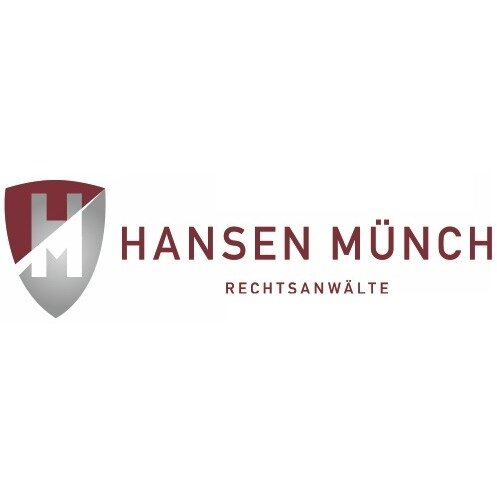Best Education Law Lawyers in Hamburg
Share your needs with us, get contacted by law firms.
Free. Takes 2 min.
List of the best lawyers in Hamburg, Germany
About Education Law in Hamburg, Germany
Education Law in Hamburg, Germany, is governed by a framework that ensures access to quality education for all residents, recognizing education as both a right and duty. The legal framework covers various aspects of educational provision, from kindergarten to higher education, including vocational training. It encompasses regulations on school governance, educational standards, student rights, and teacher obligations, adapting to the German Basic Law, Hamburg's constitutional mandate, and international treaties affecting educational policies.
Why You May Need a Lawyer
There are numerous situations where individuals might require legal assistance concerning Education Law in Hamburg. Parents might seek professional help when encountering disputes with educational institutions about special educational needs assessments or when enrolling their children. Students may face challenges with disciplinary measures, discrimination, or unfair grading practices. Educators and school administrators can also seek advice when dealing with employment issues or compliance with regulatory standards. Additionally, international students may need help navigating their rights and obligations within the German educational system.
Local Laws Overview
Education Law in Hamburg is primarily structured by the Hamburgisches Schulgesetz (Hamburg School Law), which outlines the rights, responsibilities, and organizational structure of local schools. Key aspects include:
- Compulsory education laws stipulating ages and attendance requirements.
- Regulations ensuring equal educational opportunities and prohibiting discrimination based on gender, nationality, disability, or economic status.
- Provisions for inclusive education and accommodations for students with disabilities.
- Guidelines for parental involvement and complaint procedures.
- Standards for curricula and teacher qualifications.
Frequently Asked Questions
What age range does compulsory education cover in Hamburg?
Compulsory education in Hamburg applies to children aged 6 to 18, covering primary, secondary, and some vocational education phases.
How are disputes between parents and schools usually resolved?
Disputes typically begin with direct dialogue between the parties involved. If unresolved, formal complaints to the respective school supervisory authority or legal mediation may be pursued.
Are there special provisions for children with disabilities?
Yes, Hamburg's education system is committed to inclusive education, offering special support classes and individualized educational plans tailored to the specific needs of children with disabilities.
Can parents choose which school their child attends?
Parents have some degree of choice, subject to availability. However, priority is often given to schools within the family’s residential district.
What rights do students have regarding disciplinary actions?
Students are entitled to a fair hearing before disciplinary actions are enforced, and they have the right to appeal against decisions they consider unjust.
Is homeschooling allowed in Hamburg?
No, homeschooling is not permitted as the German education system mandates school attendance within approved institutions.
What support is available for non-German speaking students?
Schools offer intensive language courses and integration programs to support non-German speaking students. The goal is to facilitate language proficiency and smooth integration into the regular educational system.
Where can international students find information on their educational rights?
International students can access resources and guidance at their educational institution's international office or contact the Studentenwerk Hamburg for additional support services.
How can educators address employment legal issues?
Educators should initially refer to their employment contract and human resources department. Legal assistance may be required for concerns regarding contractual terms or disputes.
What recourse do parents have if their child is discriminated against in school?
Parents can lodge complaints with school authorities and escalate unresolved issues to the Anti-Discrimination Office or seek legal counsel to ensure their child's rights are protected.
Additional Resources
Pursuing additional support in Education Law is assisted by various resources and organizations:
- Hamburg Ministry of Education and Vocational Training - provides information on regional education policies and guidelines.
- District school authorities - handle complaints and provide mediation in disputes.
- Studentenwerk Hamburg - offers resources and support for students, including legal aid.
- Anti-Discrimination Office - assists with issues of discrimination in education.
- Local legal clinics and non-profit organizations - often provide free or low-cost legal advice.
Next Steps
If you require legal assistance in Education Law, consider the following steps:
- Document your issue thoroughly, ensuring you have all relevant correspondences, policies, and any applicable laws.
- Contact your school's administration to discuss your concerns and seek a resolution through their standard procedures.
- If unresolved, reach out to the appropriate governmental or organizational bodies mentioned above for guidance and support.
- Consult with a legal professional who specializes in Education Law to explore your legal options and strategize the best course of action.
- Consider mediation as a possible alternative to litigation, which can be less confrontational and less costly.
Lawzana helps you find the best lawyers and law firms in Hamburg through a curated and pre-screened list of qualified legal professionals. Our platform offers rankings and detailed profiles of attorneys and law firms, allowing you to compare based on practice areas, including Education Law, experience, and client feedback.
Each profile includes a description of the firm's areas of practice, client reviews, team members and partners, year of establishment, spoken languages, office locations, contact information, social media presence, and any published articles or resources. Most firms on our platform speak English and are experienced in both local and international legal matters.
Get a quote from top-rated law firms in Hamburg, Germany — quickly, securely, and without unnecessary hassle.
Disclaimer:
The information provided on this page is for general informational purposes only and does not constitute legal advice. While we strive to ensure the accuracy and relevance of the content, legal information may change over time, and interpretations of the law can vary. You should always consult with a qualified legal professional for advice specific to your situation.
We disclaim all liability for actions taken or not taken based on the content of this page. If you believe any information is incorrect or outdated, please contact us, and we will review and update it where appropriate.










